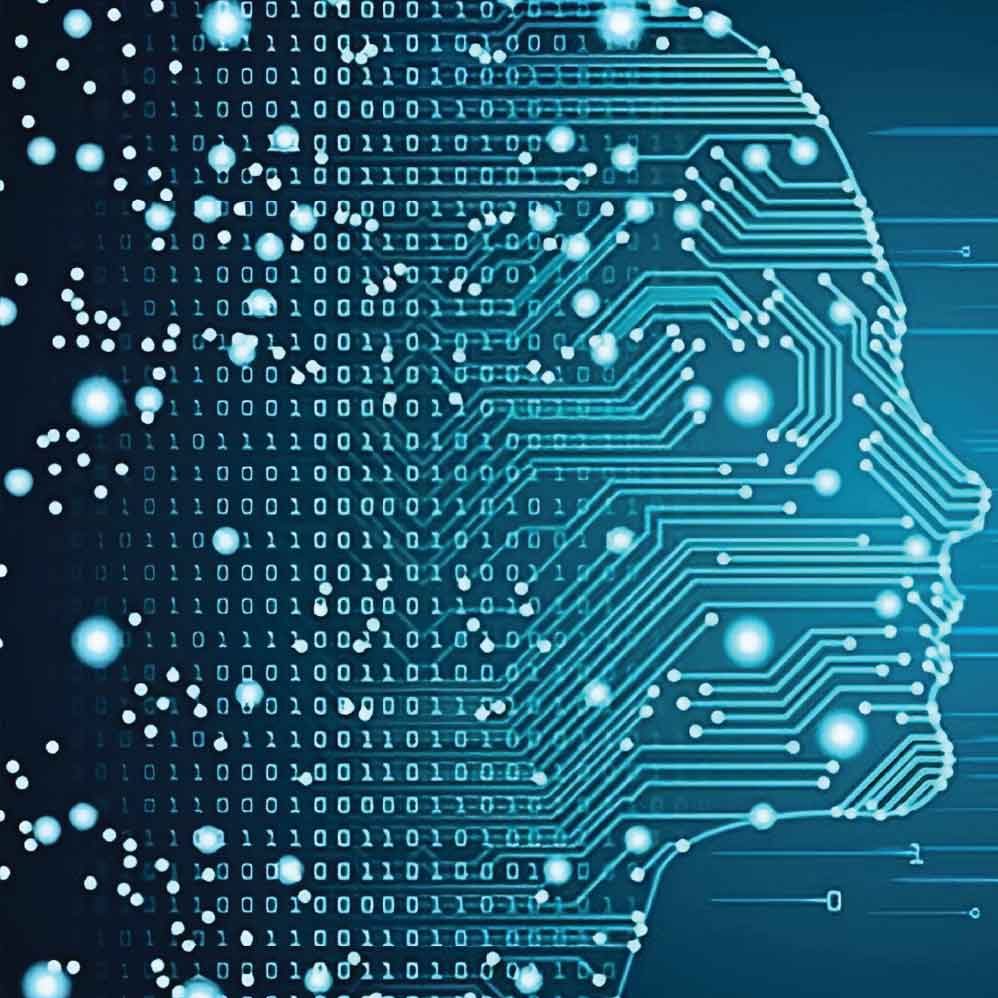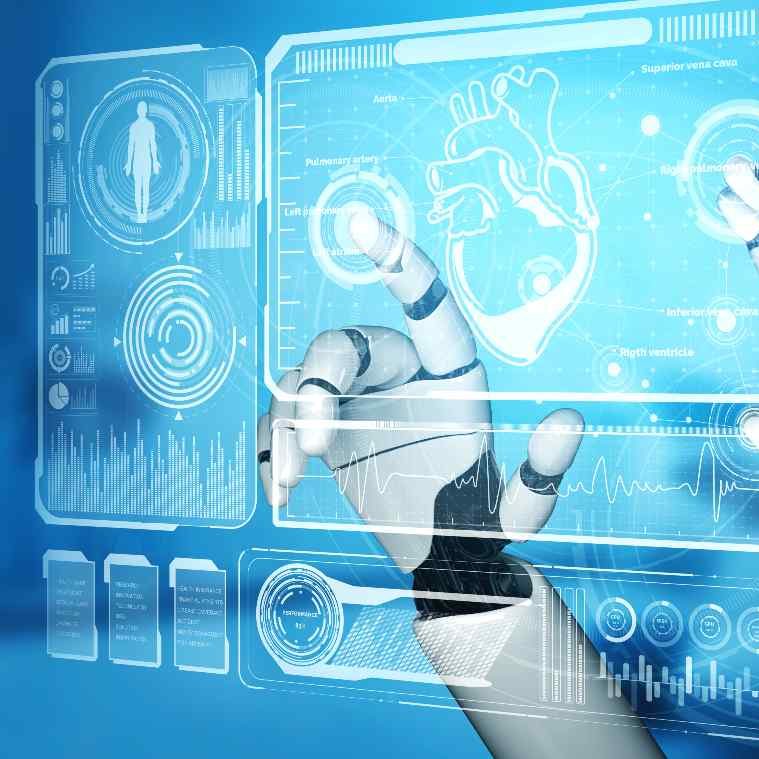Introduction to Artificial Intelligence in Nursing
The field of nursing is rapidly evolving with the integration of artificial intelligence (AI). AI offers tools and methods that profoundly transform how care is delivered, making processes more efficient and improving patient outcomes. This introduction explores how AI is currently shaping nursing and the fundamental concepts of AI that are most relevant to the profession.
The Evolution and Current State of Artificial Intelligence in Nursing
Artificial Intelligence in nursing has transitioned from theoretical exploration to real-world application over recent years. Initially, AI was used primarily for administrative tasks and data management. However, today, it facilitates complex decision-making processes, supports patient monitoring, and enhances personalized care strategies. Notably, Artificial Intelligence in nursing have grown due to advancements in machine learning and the increasing availability of healthcare data.
Core Concepts of AI Relevant to Nursing
Understanding AI’s core concepts is crucial for nursing professionals. Key concepts include machine learning, natural language processing, and predictive analytics. Machine learning algorithms improve patient outcome predictions and treatment personalization. Natural language processing helps manage and analyze extensive patient data, and predictive analytics aids in foreseeing complications, thus allowing preventive measures to be more effectively planned and implemented.

Key Applications of Artificial Intelligence in Nursing Practice
Artificial Intelligence (AI) is transforming nursing practice by providing advanced tools that enhance patient care and streamline workflows. By automating routine tasks and offering sophisticated data analysis, AI empowers nurses to focus on the more empathic aspects of their role. Let’s delve into the key areas where AI is making a significant impact.
Enhancing Clinical Decision-Making with AI
AI enables nurses to make better-informed decisions quickly. Clinical Decision Support Systems (CDSS) analyze a multitude of patient data to recommend the best course of action. This supports nurses by providing predictive information and recognizing patterns that may indicate a patient’s condition.
Data Management and Analysis Through AI
Vast amounts of patient data are no match for AI’s capabilities. Through applications such as natural language processing (NLP), AI effortlessly converts messy, unstructured information into clear, actionable insights. This allows for more efficient and accurate documentation and care planning.
AI in Patient Monitoring and Care
Remote monitoring and wearable devices help nurses track patient health outside of clinical settings. These devices provide real-time updates on vital signs and treatment adherence, enabling early intervention when necessary. Such AI-assisted monitoring ensures continuous care, enhancing patient outcomes and satisfaction.
Training and Education for Nurses in AI
Nursing education is undergoing a significant shift with the inclusion of artificial intelligence (AI) in its curriculum. From understanding basic concepts to applying AI tools in practice, nursing students are now facing a new educational frontier that prepares them for the technological advancements in healthcare.
Incorporating AI into Nursing Curricula
Nursing schools are rapidly adapting their programs to include AI education to ensure graduates are well-equipped for the future. Courses now cover how AI can improve patient care, the use of predictive analytics in clinical settings, and the operation of AI-powered devices. This inclusion ensures nurses understand the potential and limitations of AI before entering the workforce.
Ethical Considerations and AI Training
With the rise of AI comes the responsibility to address ethical concerns. Nurse education programs incorporate modules that explore the legal and moral implications of using AI. This training fosters critical thinking, ensuring future nurses can navigate challenges responsibly. Nurses learn to prioritize patient welfare while utilizing AI technology.

Simulation and Virtual Reality Tools in Nursing Education
Simulation and virtual reality (VR) represent the cutting-edge of Artificial Intelligence in nursing education. These tools provide immersive experiences, allowing students to hone their skills in realistic scenarios. VR simulations challenge students with complex situations, enhancing their decision-making and clinical judgment. Through such innovative training, nurses can gain confidence and proficiency before treating real patients.
Benefits of Artificial Intelligence in Nursing
The integration of AI into nursing has brought unprecedented benefits, streamlining processes and enhancing patient care. This section covers the key advantages AI offers to nursing professionals, patient experiences, and healthcare organizations.
Improved Patient Outcomes through Predictive Analytics
AI’s predictive analytics capabilities are a game-changer in healthcare. By analyzing patterns in vast amounts of data, AI helps nurses anticipate patient needs and potential complications. This proactive approach enables earlier interventions, which can lead to better recovery rates and reduced hospital stays.
Efficiency and Accuracy in Healthcare Delivery
Machine learning algorithms and AI-driven tools significantly increase healthcare efficiency. They assist in processing and analyzing patient data quickly, leading to more timely and accurate diagnoses. This precision reduces errors and improves the overall quality of healthcare delivery, ensuring patients receive the best possible care.
Reducing the Burden of Routine Tasks on Nursing Staff
AI excels in automating repetitive tasks such as scheduling, medication reminders, and patient record management. By handling these duties, AI frees up nursing staff to focus more on patient interaction and care, which is integral to the healing process. This shift not only reduces nurse fatigue but also enhances job satisfaction and patient-nurse relationships.
Challenges and Ethical Implications of AI in Nursing
As AI’s role in nursing expands, it introduces several challenges and ethical implications that require careful consideration. Addressing these issues is crucial for maintaining trust, ensuring ethical standards, and safeguarding patient welfare.
The integration of AI in nursing brings with it a range of legal and ethical concerns. Key issues include decision-making authority, responsibility for AI decisions, and the potential for AI to make errors. Legal frameworks must evolve with these technologies to ensure accountability and protect both patients and healthcare providers. Ethical training for nurses on AI use is essential, focusing on maintaining patient dignity and ensuring equitable care.
Balancing Technology and Human Touch in Nursing
While AI enhances efficiency and decision-making, it is vital to maintain the ‘human touch’ in nursing. Nurses play a critical role in providing empathy and understanding, which AI cannot replicate. Balancing technological advancements with compassionate care ensures that the nursing profession retains its core values of empathy and overall patient well-being.
Privacy and Security in AI Implementations
AI technologies handle massive amounts of sensitive patient data, raising significant privacy and security concerns. Ensuring robust data protection measures are in place is crucial. Nurses and healthcare organizations must prioritize data security to protect patient information from breaches and ensure compliance with healthcare regulations like HIPAA.

The Future Outlook for AI in Nursing
As AI continues to evolve, its integration into nursing is only expected to deepen. This future-focused perspective seeks to explore what lies ahead for AI in healthcare, particularly in nursing, and how it can further revolutionize this field.
Potential Developments and Innovations
Innovations in AI are poised to transform nursing in several impactful ways. We anticipate advancements in predictive analytics, enhancing the ability to forecast patient complications and outcomes more precisely. Progress in natural language processing could revolutionize documentation processes, making them quicker and more accurate. Moreover, as machine learning becomes more sophisticated, personalized patient care plans will be significantly refined, offering treatments tailored uniquely to individual health profiles.
Preparing Nursing Professionals for AI Advancements
Preparing nurses for a future intertwined with AI involves comprehensive training and education. Nursing programs must continue evolving to include more AI-related curriculum, ensuring that nurses are not only users of AI technology but also contributors to its development in clinical settings. Nurse educators must focus on imparting skills like data analytics, ethical AI usage, and management of AI-driven tools. Essentially, as AI responsibilities grow, so too should our commitment to empowering nurses with the knowledge and skills needed to harness such technology effectively.
The Role of Continued Research and Collaboration between AI and Nursing
The path forward for Artificial Intelligence in nursing should be paved with ongoing research and collaboration. Joint efforts between AI technologists and nursing professionals can create a feedback loop that enhances both AI tools and nursing practices. Research not only fine-tunes AI applications but also explores new areas where AI can benefit nursing, such as in mental health predictions or chronic disease management. Collaborative projects should focus on developing AI tools that uphold ethical standards, preserve patient dignity, and promote equitable healthcare outcomes, ensuring a synergy that truly enhances patient care.


